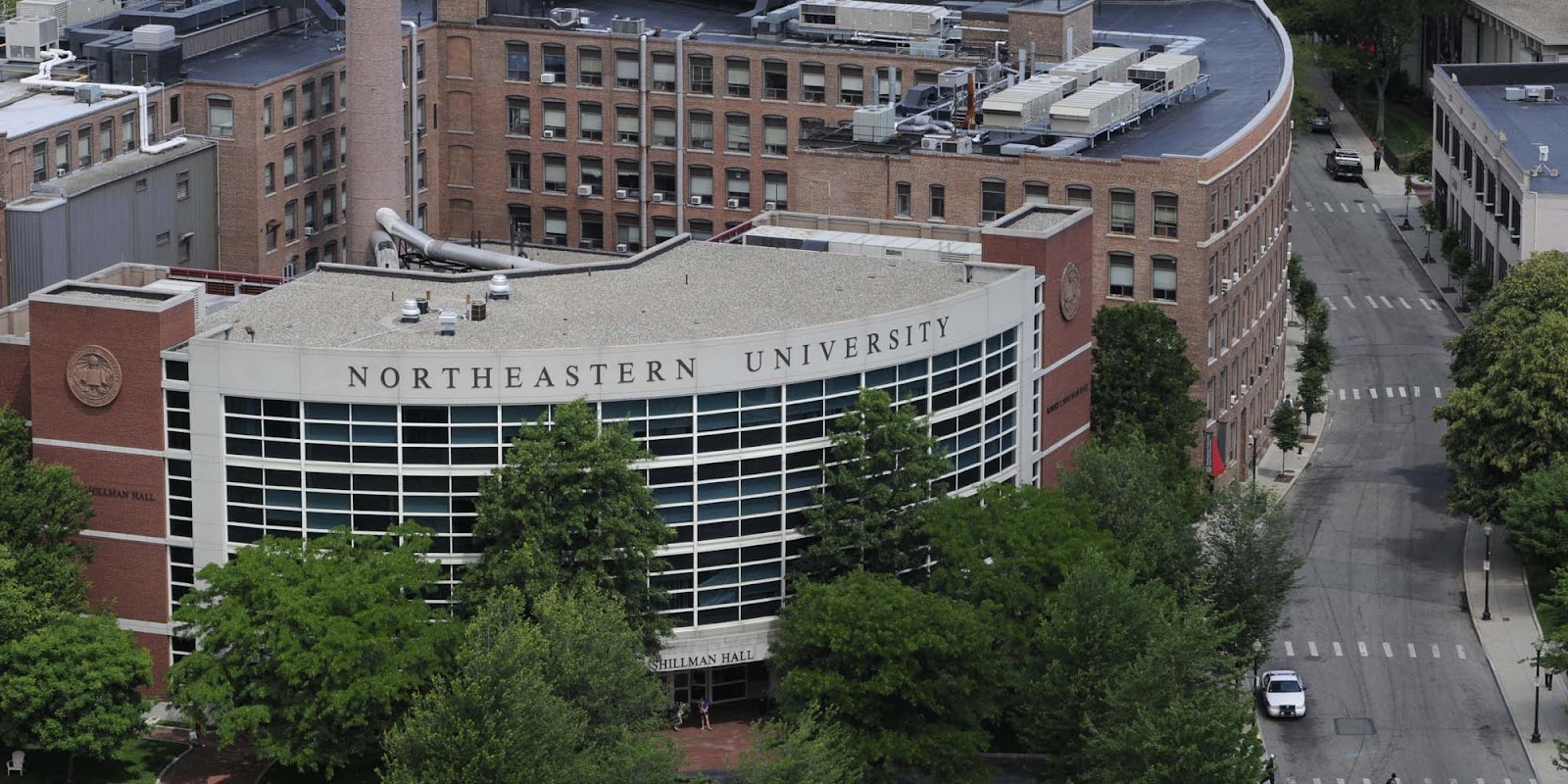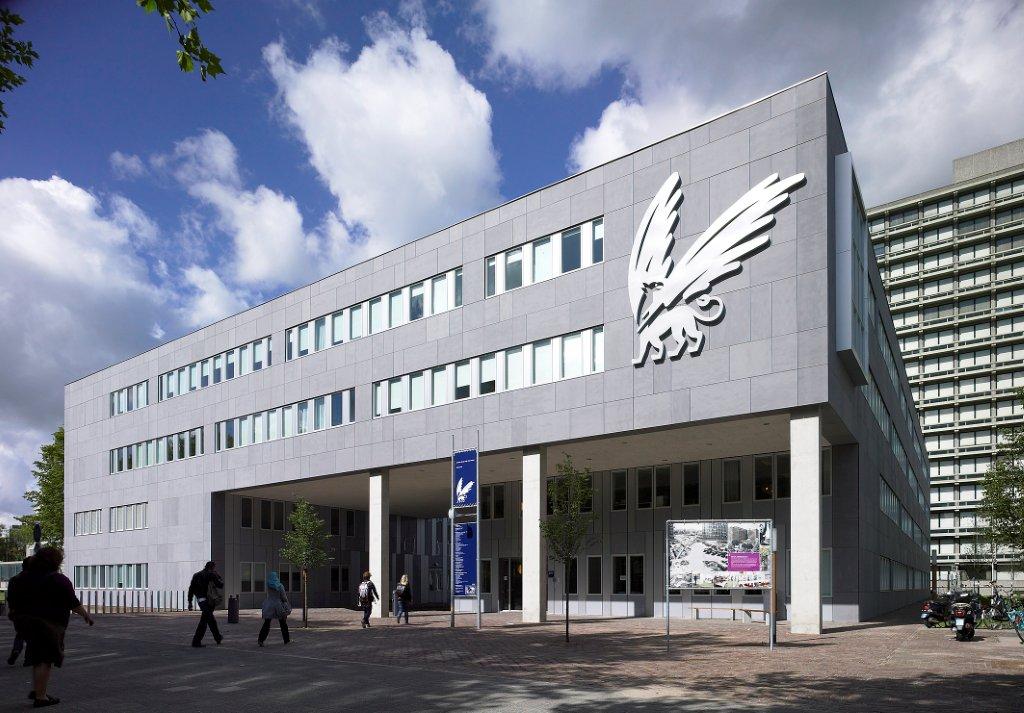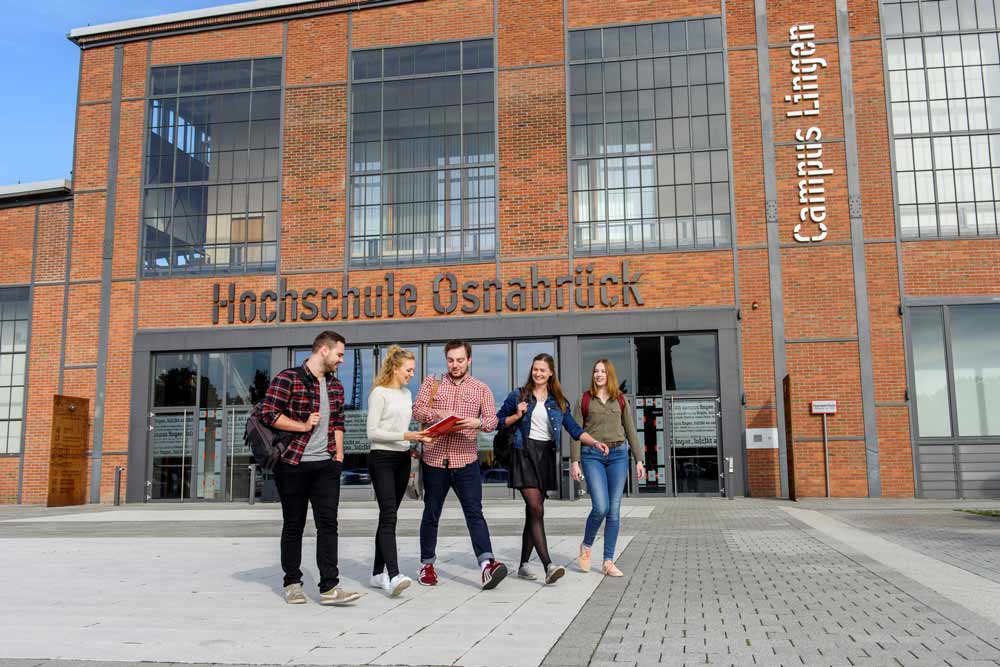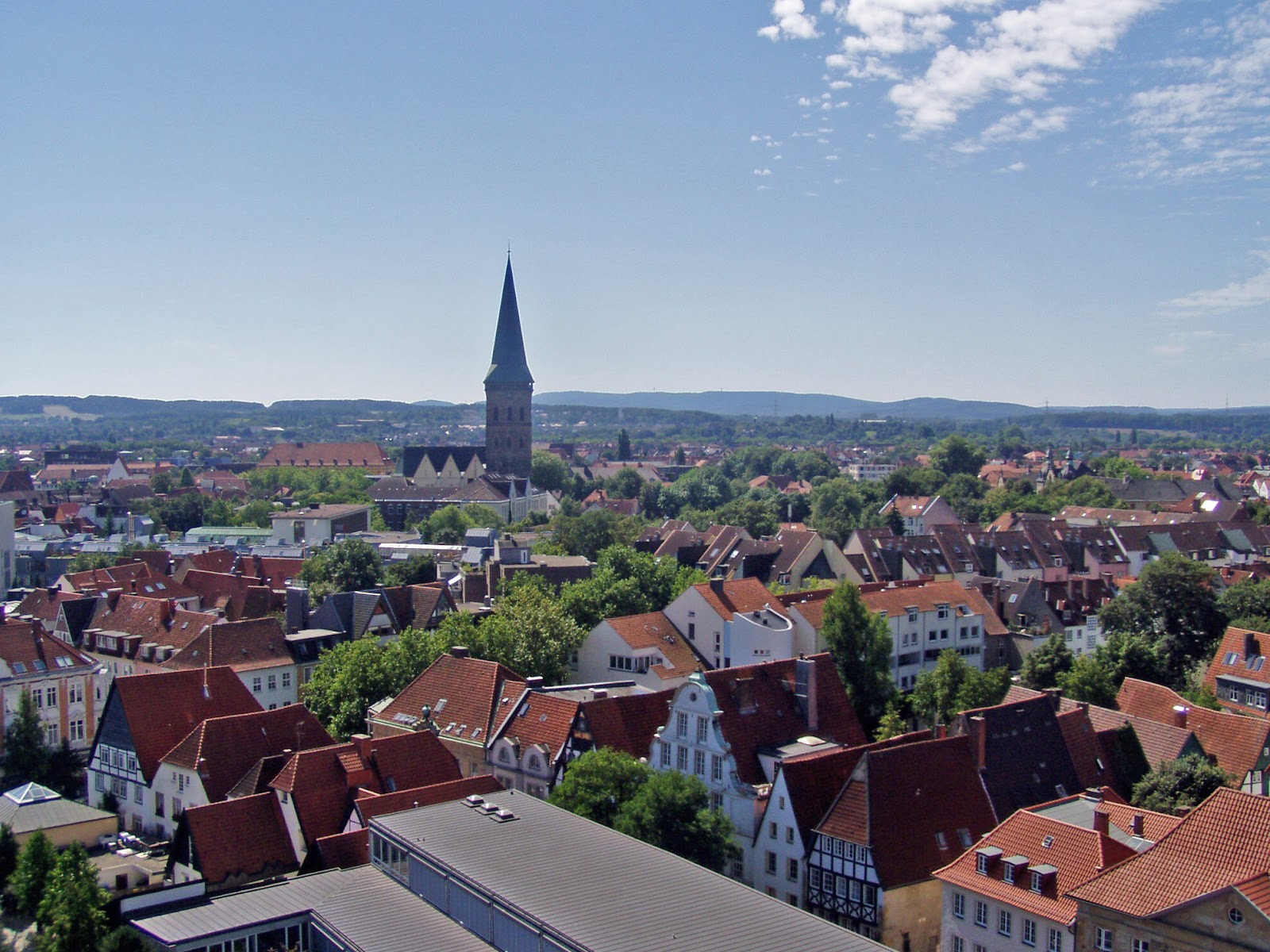How to get an MBA in Germany for free – Zaidat’s story
Zaidat,our specialist in higher education, decided to move to St. Petersburg after studying at Kazan University, where she worked for an international company for several years. During this time, she realized that she wanted to continue her studies abroad and decided to enroll in an MBA. The main criterion for choosing a university for her was full funding. How she chose universities, prepared for admission and how she ended up in Germany, Zaidat tells in this article.
I was born in the small village of Alekseevskoye in the Republic of Tatarstan. After school, I entered Kazan Federal University for a bachelor’s degree in accounting, analysis and audit. When she received her diploma, she moved to St. Petersburg and worked for the international audit company KPMG for two years.
* Prices are for 2019
In general, I applied to the USA, Germany and the Netherlands. I chose the latter because English is one of the two official languages there, and it would be easier for me to get used to it.
Germany was not a priority, I wanted to enter the USA, I liked it there. But several people from my university studied at German universities, I was aware of how things were going there. I also knew that you can get a higher education in Germany for free: you only pay fees for semesters, which is about € 350 (≈ 30,000 ₽) every six months.
Here are the universities I selected for admission:
- 🇩🇪 Germany — Hochschule Osnabrueck, Hochschule Schmalkalden, Universitat Bonn;
- 🇳🇱 Netherlands – VU Amsterdam;
- 🇺🇸 USA – Auburn University, University of Tampa, Northeastern University, The University of Texas at Austin
Financial was the most important issue for me when choosing a country of study: I would go to America if I got full funding for my studies.
Therefore, when I received answers from all the universities where I applied, I chose the one that suited the money. In the US, Auburn University and University of Tampa gave me full funding, but they weren’t on my dream university list. I really wanted to go to Northeastern University, but they did not give me full funding.

At VU Amsterdam in the Netherlands I I also entered, but I was not offered any scholarship. In the end, I chose a university in Germany Hochschule Osnabrueck (University of Applied Sciences in Osnabrück) and an MBA (International Business and Management) program.

Another reason I settled on Germany is my family. When I traveled on Work&Travel, it was difficult for my parents to let me go to a foreign country for such a long time. And it was hard for me to be away from them. This is not Europe, from where you can fly home in a couple of hours. I also applied in 2019 and was afraid that I would not get a visa – that year there were already problems with obtaining it at the American embassy.
Studying Abroad: How to Decide to Move and Tell Your Parents
How I chose the university and specialty
I wanted to continue my studies in my field, so I was looking for MBA programs in economics. I chose according to the reviews of acquaintances and students from my university – where they entered, I also considered those universities and directions. For example, I applied to the Netherlands because a classmate of my colleague from KPMG studied there. She told me everything in detail about the university itself and the Dutch education system.
In US universities, the main criteria were their rating and the availability of funding. As I said, it was important for me.
Higher education in Germany: how to enter the University of Munich after school
I started learning English at school in the fifth grade. I had a cool teacher whom I adored, so I devoted a lot of time to the language and loved to go to classes. But she only worked with us for two years, and then our class was transferred to another teacher, who I absolutely did not like. I was worried that I would not learn anything with him, and asked for individual lessons with my first English teacher.
We studied twice a week for an hour from the seventh grade to the tenth grade. Then she said that she taught me everything within the framework of the school, laid the foundation and that further I could learn English on my own. Then my level was B2 (Upper Intermediate, Above average). I was already preparing for the exam on my own using textbooks.
When I was in high school, every summer for three years I went to a language camp near Kazan. This experience helped me a lot to improve my language. The shift lasted a month, all communication took place in English, whether it was any lessons or activities. The teachers were English-speaking students who came to Russia for internships, as well as students of Russian universities who knew English perfectly, and some even visited the USA on an exchange program under the FLEX program. I also wanted to take part in it at school, but I did not pass the selection.(Note FLEX is an annual paid program for high school students from Europe and Eurasia to study in a US high school and live in a host family. It is closed in Russia for 2021).
Already at the university, I went to the USA twice in the summer under the Work&Travel program. In 2015, I was in Arizona, the second – in Colorado. So I broke the language barrier and got the necessary practice.
I started learning German after I received a positive response from the University of Osnabrück. It was in May, studies began at the end of September. Until recently, I did not know where I would go to study – in an English-speaking country or in Germany – so I did not devote much time to German. When I arrived, I knew only basic topics, and sometimes it was hard for me to strike up a conversation on the street or in a store. Seriously, I started studying German already in the magistracy on the spot.
The admission process was long. I wanted to study in the USA and understood that I needed to collect a high-quality package of documents. For Europe, the same documents were required, except for the GMAT and letters of recommendation.
As a result, I prepared:
– TOEFL Certificate of English Proficiency
I already had a good level of English, but I still studied with a teacher for special test aids. Prepared for six months. I passed the exam the first time with the required score – I got 108 out of 120.
Common mistakes in TOEFL
TOEFL Preparation: Exam Structure, Tips
How to take the TOEFL at home online
– GMAT exam(US only, not required in Europe)
It took a whole year to pass it: I prepared in my free time from work, sometimes I even got up at five in the morning to work out with a fresh mind. As a result, I had four attempts – the first in November 2017, and the last in the fall of 2018 It was required to score 700 points, but my best result is 680, which did not reach.
How to prepare for the GMAT
– motivational letter
I played with my hobbies. I studied piano for eight years at a music school and played volleyball professionally, but at the age of 14 I got a knee injury and left the sport. Therefore, in a letter, I wrote how these lessons taught me to overcome difficulties and what qualities I developed in myself thanks to them, and also that without that injury, my career would have taken a different path.
How to Write a Motivation Letter for Study: Tips and Examples
– letters of recommendation
Prepared two recommendations: one from a supervisor from Kazan University, the other from a supervisor at work.
How to write a good letter of recommendation
– bachelor’s degree and grade transcript
I had a decent degree with an average GPA of 4.9 out of 5.
How to calculate GPA – the average score of a diploma or certificate
How I got a visa to Germany
I was given a student visa for six months, and already in Germany I submitted documents to the Ministry of Immigrant Affairs and received a residence permit in connection with my studies for two years.
Usually, the following set of documents is required for a study visa:
- questionnaire;
- passport and photographs;
- certificate of admission to the university;
- financial guarantees for at least the first year of study and life in Germany, about 10,000 € (≈ 782,000 ₽) on the account of a student or sponsor (parents, spouse);
- sponsorship letter stating that your sponsor is ready to pay your expenses;
- certificate of education (school certificate, diploma);
- motivation letter explaining why you want to study in Germany;
- resume;
- proof of language knowledge at B1 level (English or German, depending on the program);
- health insurance;
- visa fee payment receipt in 60 € (≈ 4,700 ₽).
When I received an invitation from the university, I prepared all the documents for a visa and signed up to submit them to the German embassy in Moscow. There, at the interview, the consul carefully studied everything, asked a couple of questions, and I waited three weeks for an answer. I found out about the decision on the website of the embassy: they posted lists of those who were given a visa – I was among them.
Seek more information on the website of the German Embassy or leave a application for a visa support.
How to get a visa yourself – 10 tips
I started my studies in September 2019 and passed all the exams in the spring of 2021. I am currently looking for an internship for six months. It’s not required, but it’s recommended. After that, I have four months to write and defend my thesis in English.

Study itself was divided into two parts – before the pandemic and after. Before covid, I went to the university four times a week, but in April 2020 we switched to online training and classes were held on Zoom.
Before the pandemic, my typical school day looked like this: in the morning there were two classes at the university, then I went to the library to study. But couples could start both at 8:00 and at 19:00. In total, there were six classes a week, these are theory and practice combined together.
There are 25 people in my group, half of them are Germans, half are from other countries, including France, Latin America, China, Georgia, Tunisia.
The teachers are Germans who speak good English. They are professionals in their field and much more humane than I thought. It seemed to me that they would be strict and harsh, but in reality it turned out not to be so.

The load is heavy. We do 80% of the work ourselves, because instead of exams we often prepare projects where we work in groups of three or four people. No one monitors the visit, you can generally come straight to the exam at the end. How you prepare for it is your own business. You are not forced to necessarily go to all couples and learn from under pressure. But if you do not pass the exam on the third attempt, you will be expelled, and then you will not be able to study at all in German universities in the chosen specialty.
German students are very punctual, rational and responsible. They try to do everything in advance, come on time, they have everything scheduled. By the way, I noticed this punctuality everywhere. When I applied to US universities, I could wait weeks for an answer, I had to write and remind the admission committee about myself, request the information myself. From Germany, the answers came within three working days and they were so comprehensive that I did not have any additional questions.
I live in the small town of Osnabrück. Here I have a dorm room from the university, for which I pay € 240 (≈ 20,000 ₽). When I received confirmation that I had entered, I immediately wrote to the selection committee and requested a place in the hostel. Foreign students usually live there, so they gave me a room without any problems. The Germans themselves prefer to rent apartments for several people or live separately.
Everything suits me in the hostel, so I did not look for an apartment. I was surprised that in Germany one person lives in rooms, and not several, as in Russia. For example, in Kazan I shared a room with two neighbors, in terms of area it was the same as I have now in a German hostel. The only thing is that we share a kitchen and a bathroom for five to six people per floor.

At first it was hard for me because I didn’t know German. In English, you can study here and even find a job, but it is not enough for a comfortable life – you leave the university and find yourself in an environment where you do not understand anything. Neither what they tell you at the bus stop, nor signs in stores. Not all Germans speak English. Therefore, I advise, if you enter Germany, learn German in advance. This will reduce stress levels and help you adapt faster.
I spend about € 600 (≈ 55,000 ₽) per month, including rent. About €100 (≈ ≈ 8,500 ₽) goes to health insurance, the rest goes to food and leisure expenses. Traveling in transport is free for me, I receive a student travel card after paying fees for the semester. I can even use it to travel by train for free in the region of Lower Saxony (Note the land where Osnabrück is located).
After graduating from the university, I want to find a job in Germany and get work experience here. The university is not engaged in employment, but helps with the search for internships.
Now I devote a lot of time to learning the language, so that in about a year I will look for a job not in English, but in German. Considering the experience of my friends who graduated from German universities, everyone who wanted to find a job in Germany.
Zaidat has gone through all the stages of applying to a German university and now helps other students fulfill their dream of going abroad. Sign up for a consultation with her to take the first step and dramatically change your life.

